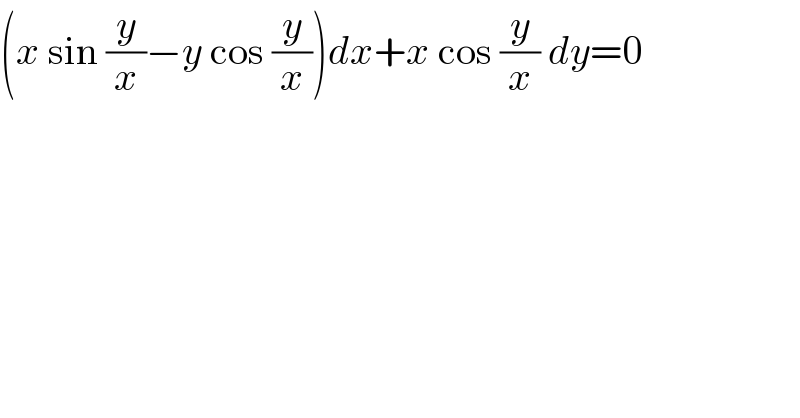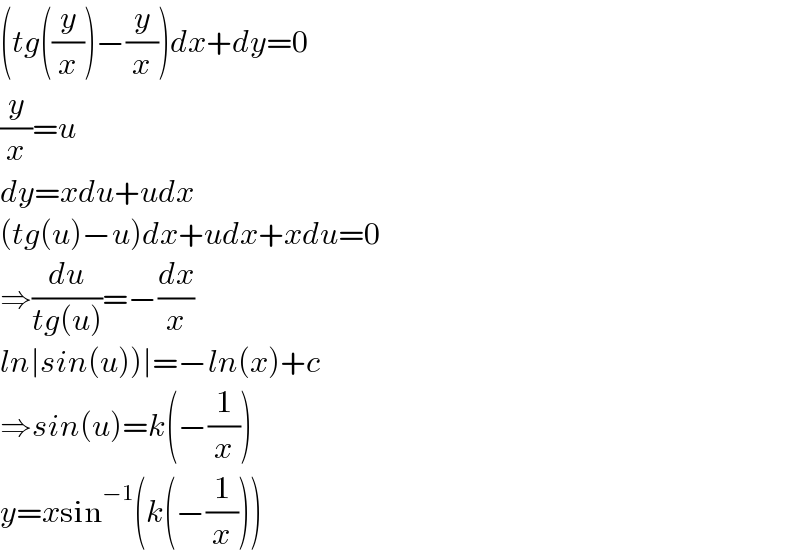Question Number 155965 by john_santu last updated on 06/Oct/21

$$\left({x}\:\mathrm{sin}\:\frac{{y}}{{x}}−{y}\:\mathrm{cos}\:\frac{{y}}{{x}}\right){dx}+{x}\:\mathrm{cos}\:\frac{{y}}{{x}}\:{dy}=\mathrm{0} \\ $$
Answered by mindispower last updated on 07/Oct/21

$$\left({tg}\left(\frac{{y}}{{x}}\right)−\frac{{y}}{{x}}\right){dx}+{dy}=\mathrm{0} \\ $$$$\frac{{y}}{{x}}={u} \\ $$$${dy}={xdu}+{udx} \\ $$$$\left({tg}\left({u}\right)−{u}\right){dx}+{udx}+{xdu}=\mathrm{0} \\ $$$$\Rightarrow\frac{{du}}{{tg}\left({u}\right)}=−\frac{{dx}}{{x}} \\ $$$$\left.{ln}\mid{sin}\left({u}\right)\right)\mid=−{ln}\left({x}\right)+{c} \\ $$$$\Rightarrow{sin}\left({u}\right)={k}\left(−\frac{\mathrm{1}}{{x}}\right) \\ $$$${y}={x}\mathrm{sin}^{−\mathrm{1}} \left({k}\left(−\frac{\mathrm{1}}{{x}}\right)\right) \\ $$
